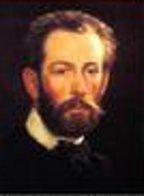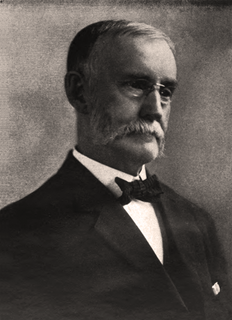A Quote by Marcel Proust
Even in the most insignificant details of our daily life, none of us can be said to constitute a material whole, which is identical for everyone, and need only be turned up like a page in an account-book or the record of a will; our social personality is created by the thoughts of other people.
Related Quotes
None of us constitutes a material whole, identical for everyone, which a person has only to go look up as though we were a book of specifications or a last testament; our social personality is a creation of the minds of others. Even the very simple act that we call "seeing a person we know" is in part an intellectual one. We fill the physical appearance of the individual we see with all the notions we have about him, and of the total picture that we form for ourselves, these notions certainly occupy the greater part.
Your life is like a book. The title page is your name, the preface your introductions to the world. The pages are a daily record of your efforts, trials, pleasures, discouragements, and achievements. Day by day your thoughts and acts are being inscribed in your book of life. Hour by hour, the record is being made that must stand for all time. Once the word 'finish' must be written, let it then be said of your book that it is a record of noble purpose, generous service, and work well-done.
None of us like the concept of law because none of us like the restraints it puts on us. But when we understand that God has given us his law to aid us in guarding our souls, we see that the law is for our fulfillment, not for our limitation. The law reminds us that some things, some experiences, some relationships are sacred. When everything has been profaned, it is not just my freedom that has been lost- the loss is everyone's. God gave us the law to remind us of the sacredness of life, and our created legal systems only serve to remind us of the profane judgments we make.
We exist only by virtue of what we possess, we possess only what is really present to us, and many of our memories, our moods, our ideas sail away on a voyage of their own until they are lost to sight! Then we can no longer take them into account in the total which is our personality. But they know of secret paths by which to return to us.
A devotional book, which takes a Scripture text, and so opens it for us in the morning - that all day long it helps us to live, becoming a true lamp to our feet, and a staff to lean upon when the way is rough - is the very best devotional help we can possibly have. What we need in a devotional book which will bless our lives - is the application of the great teachings of Scripture - to common, daily, practical life.
An entertainment is something which distracts us or diverts us from the routine of daily life. It makes us for the time being forget our cares and worries; it interrupts our conscious thoughts and habits, rests our nerves and minds, though it may incidentally exhaust our bodies. Art, on the other hand, though it may divert us from the normal routine of our existence, causes us in some way or other to become conscious of that existence.
We all have to show up and do our job regardless of our life circumstances or situations. We don't have to do it with an attitude or whatever but maybe we do that day. Everyone understands that life happens and we have to create a whole other life where our life doesn't even exist. You know, our real life doesn't exist, these characters exist. And that is our life. And that's who we are.
The storyteller is deep inside everyone of us. The story-maker is always with us. Let us suppose our world is attacked by war, by the horrors that we all of us easily imagine. Let us suppose floods wash through our cities, the seas rise . . . but the storyteller will be there, for it is our imaginations which shape us, keep us, create us - for good and for ill. It is our stories that will recreate us, when we are torn, hurt, even destroyed. It is the storyteller, the dream-maker, the myth-maker, that is our phoenix, that represents us at our best, and at our most creative.
This solidarity can grow only in inverse ratio to personality... Solidarity which comes from likenesses is at its maximum when the collective conscience completely envelops our whole conscience and coincides in all points with it... when this solidarity exercises its force, our personality vanishes, as our definition permits us to say, for we are no longer ourselves, but the collective life.
We must embrace our differences, even celebrate our diversity. We must glory in the fact that God created each of us as unique human beings. God created us different, but God did not create us for separation. God created us different that we might recognize our need for one another. We must reverence our uniqueness, reverence everything that makes us what we are: our language, our culture, our religious tradition.
We may seem the weakest and most insignificant of all the Realms, but our strength comes in other ways. We have what no other race has: imagination. Any one of us, even the lowliest, can create worlds within ourselves; we can people them with the most extraordinary creatures, the most amazing inventions, the most incredible things. We can live in those worlds ourselves, if we choose; and in our own worlds, we can be as we want to be. Imagination is as close as we will ever be to godhead, Poison, for in imagination, we can create wonders.
It is often said that in prosperity we have many friends, but that we are usually neglected when things go badly. I disagree. Not only do malicious people flock about us in order to witness our ruin, but other unfortunates as well, who have been kept away by our happiness, and now feel close to us on account of our troubles.
We need to repent of the haughty way in which we sometimes stand in judgment upon Scripture and must learn to sit humbly under its judgments instead. If we come to Scripture with our minds made up, expecting to hear from it only an echo of our own thoughts and never the thunderclap of God's, then indeed he will not speak to us and we shall only be confirmed in our own prejudices. We must allow the Word of God to confront us, to disturb our security, to undermine our complacency and to overthrow our patterns of thought and behavior.





































